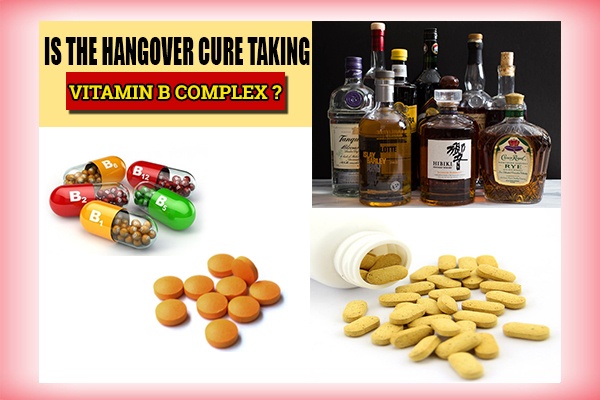
If you’re like many party-goers who like to raise a glass, or two, or three, or more during that special occasion, then you know it can quickly get out of hand, resulting in the dreaded morning after effects followed by the “faithful” promise to never drink again. And we believe you, but just in case your friend wants to know, we would like to offer the following hangover cure to help.
What Happens in the Body When You are Hungover
Researchers and scientists are uncertain as to the exact cause of a hangover; however, what they do know is that it has to do with the way our bodies metabolize alcohol and that it affects people differently ranging from slight discomfort to more severe symptoms.
According to scientists (1), there is an enzyme in alcohol called alcohol dehydrogenase (ADH) that metabolizes ethanol, the type of alcohol in liquor, into acetaldehyde, a toxic compound. Shortly upon consuming a drink, the liver, the body’s major player in the metabolism of alcohol, produces two enzymes in addition to the antioxidant glutathione to break down acetaldehyde.
The problem is, there is only a certain amount of glutathione available in the liver, and it takes time for the liver to generate more, so the toxic acetaldehyde can be stuck lingering in your body for a while, which can cause a variety of symptoms including headache, nausea, drowsiness, increased hyper-excitability, facial flushing, lower blood pressure, gastrointestinal problems, concentration problems, dry mouth, anxiety, and more. Symptoms of excessive acetaldehyde can begin as soon as a few hours after drinking but tend to be more pronounced the next day.
In addition, alcohol is a diuretic, which means it can drain your body of fluids, which can leave you dehydrated in the morning.
Hang over symptoms are not always a sign of heavy drinking; sometimes certain beverages can contribute to your symptoms. Alcohol contains chemicals called congeners, which are produced during fermentation and give color and taste to liquor. Darker drinks, such as bourbon, wine, brandy, and whiskey are generally higher in congeners than lighter drinks, such as vodka and white wine, which can cause symptoms in sensitive individuals.
How Vitamin B can Help
Because alcohol is a diuretic, it depletes your body of vitamins and nutrients, including vitamins B, which maintains cell health, helps regulate the nervous system, boosts mood, keeps you energized, and more, and vitamin C, which strengthens the immune system and protects against damage caused by free radicals, pollutants, toxic chemicals, and more.
According to reports, people who took a vitamin B complex, which included B1, B6, B2, B12, and folic acid, while suffering the effects of heavy drinking, swore by its effectiveness, especially B12, which contributes to a proper nervous system and brain function.
Another popular remedy in the U.S. is to take an effervescent vitamin supplement, such as Emergen-C, that packs a vitamin-induced boost.
Fans of these methods suggest taking one vitamin complex before drinking and then another one the next day with food.
Are There Other Natural Remedies That Work as Well?
If excessive drinking has left you dehydrated, vomiting, or with diarrhea, many people suggest using Pedialyte as needed. Pedialyte is specially formulated to restore moisture and fluids in children who suffer from extreme dehydration. Gatorade and coconut water, which also contain electrolytes, may also help with dehydration.
Some people swear by drinking lots of water to both prevent and cure the effects of binge drinking. Since alcohol dehydrates the body of fluids, the more water your drink, the better you feel. The key is to alternate a glass of water in between alcoholic drinks, then down one or more glasses of water before bed, and then continue to flush your system with water throughout the next day to feel better.
3 Tips to Remember Before and After You Drink
- Drink slowly to allow your liver time to metabolize the alcohol and produce more antioxidants. Typically, your liver can only detoxify one drink per hour.
- Exercise speeds up the metabolism, which helps you sweat out toxins. To help cure the blahs the next day, try exercising to release your body of excess toxins.
- Avoid acetaminophen! If you must reach for the painkillers after a big night out, doctors warn, opt for ibuprofen as opposed to acetaminophen, or Tylenol, which when used in combination with alcohol, can cause kidney and liver damage.
If you find yourself hung over, searching for the perfect cure, you should know that you are not alone. In fact, since the beginning of time people have been on a quest to find the perfect cure, eventually coming to rely on such interesting ingredients like pickled sheep eyes, owls eggs, and fried canary. So if all else fails, just the thought of knowing you don’t have to rely upon ancient remedies should be enough to make you feel better.
Reference
(1). Minnick, F. (March 2014). Scientific American. In search of a Cure for the Dreaded Hang over: Can science help the physical after effects of drinking too much alcohol-if not the regrets? Retrieved from https://www.scientificamerican.com/article/in-search-of-a-cure-for-the-dreaded-hangover/

Leave a Reply